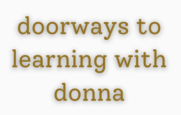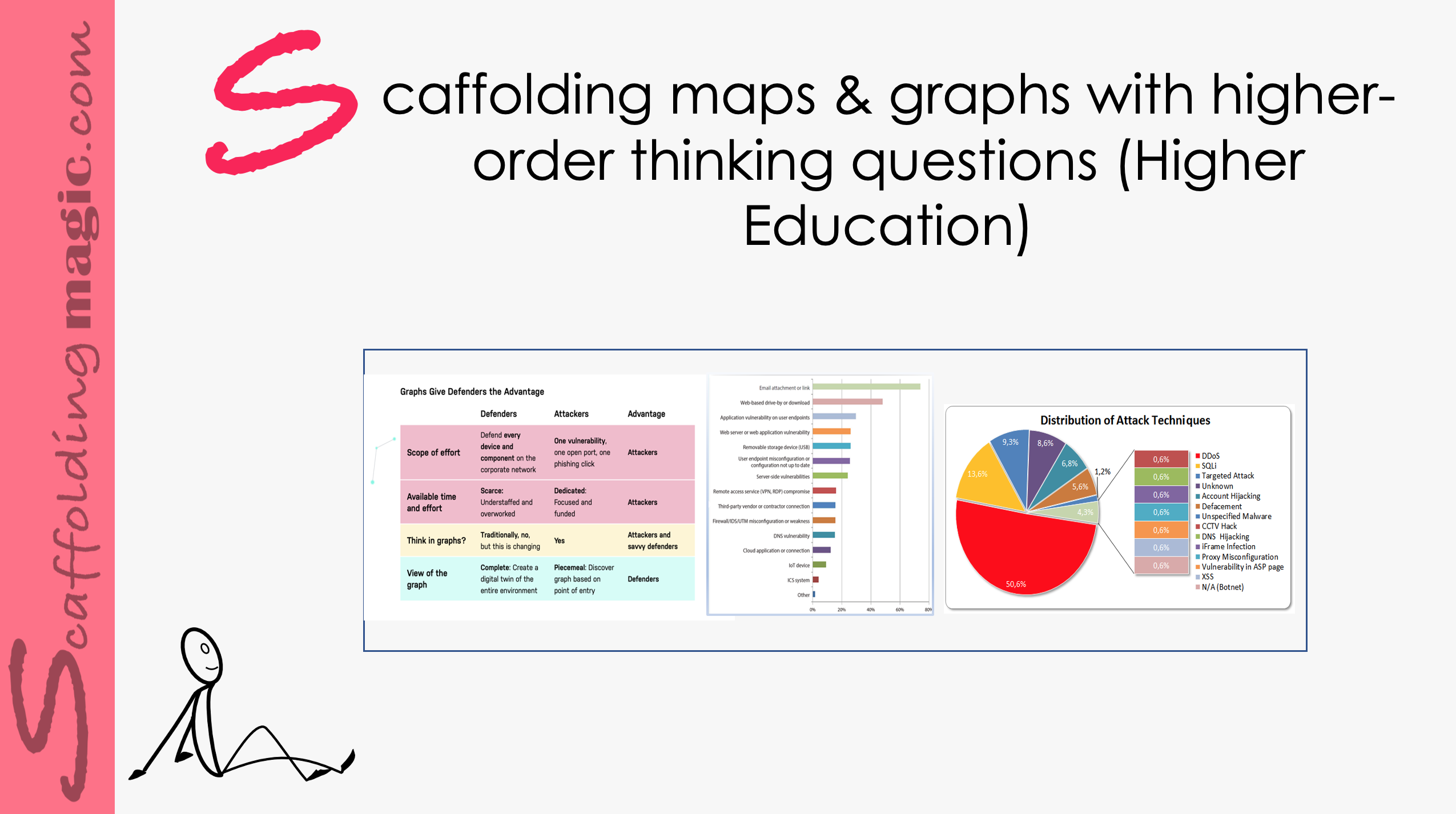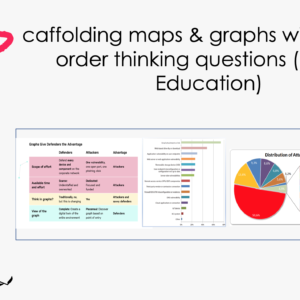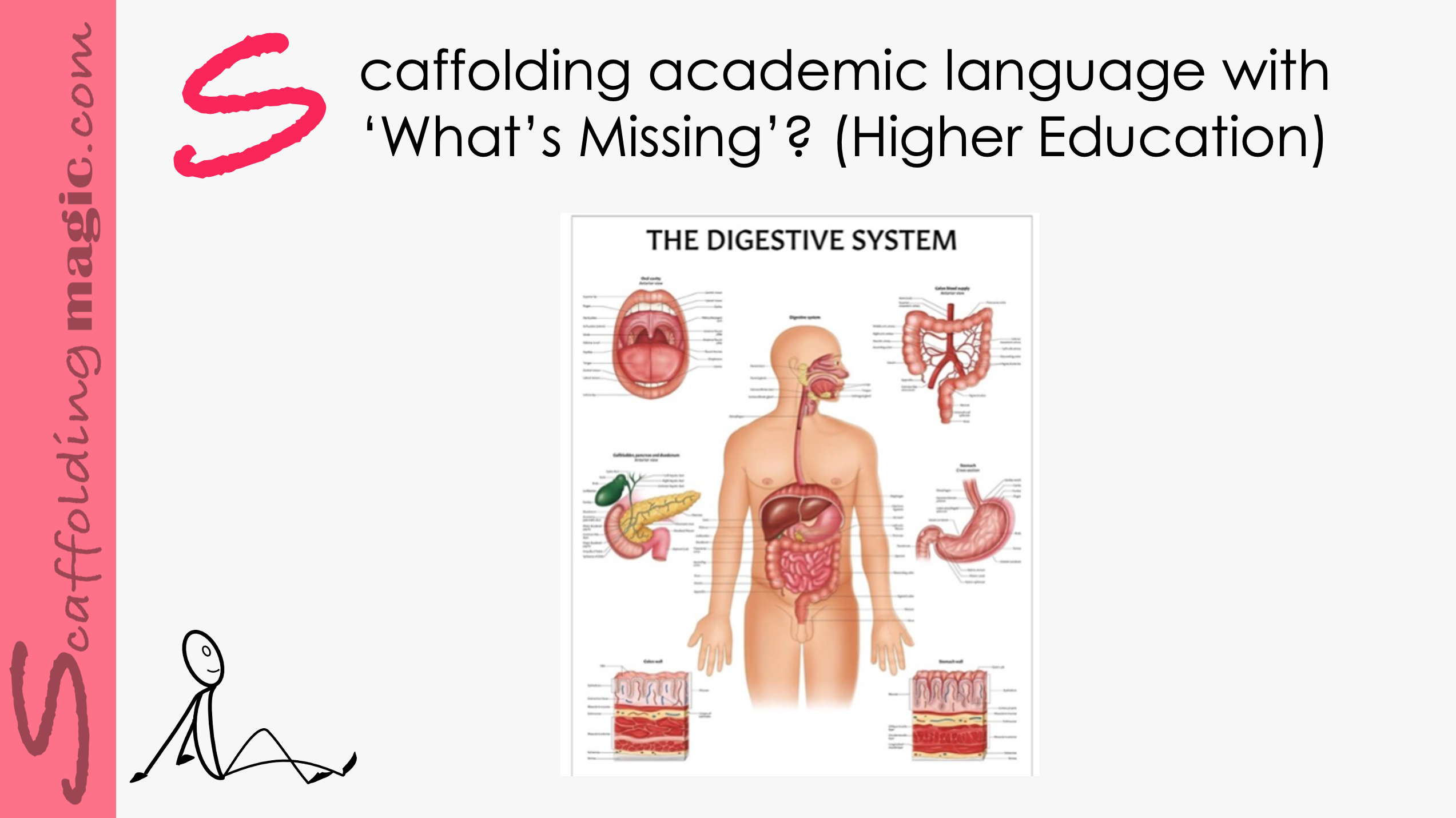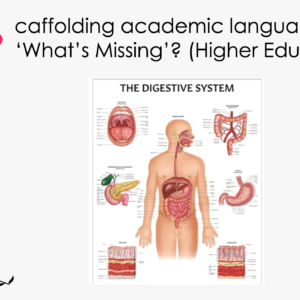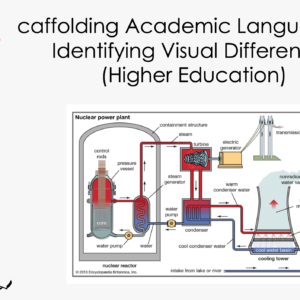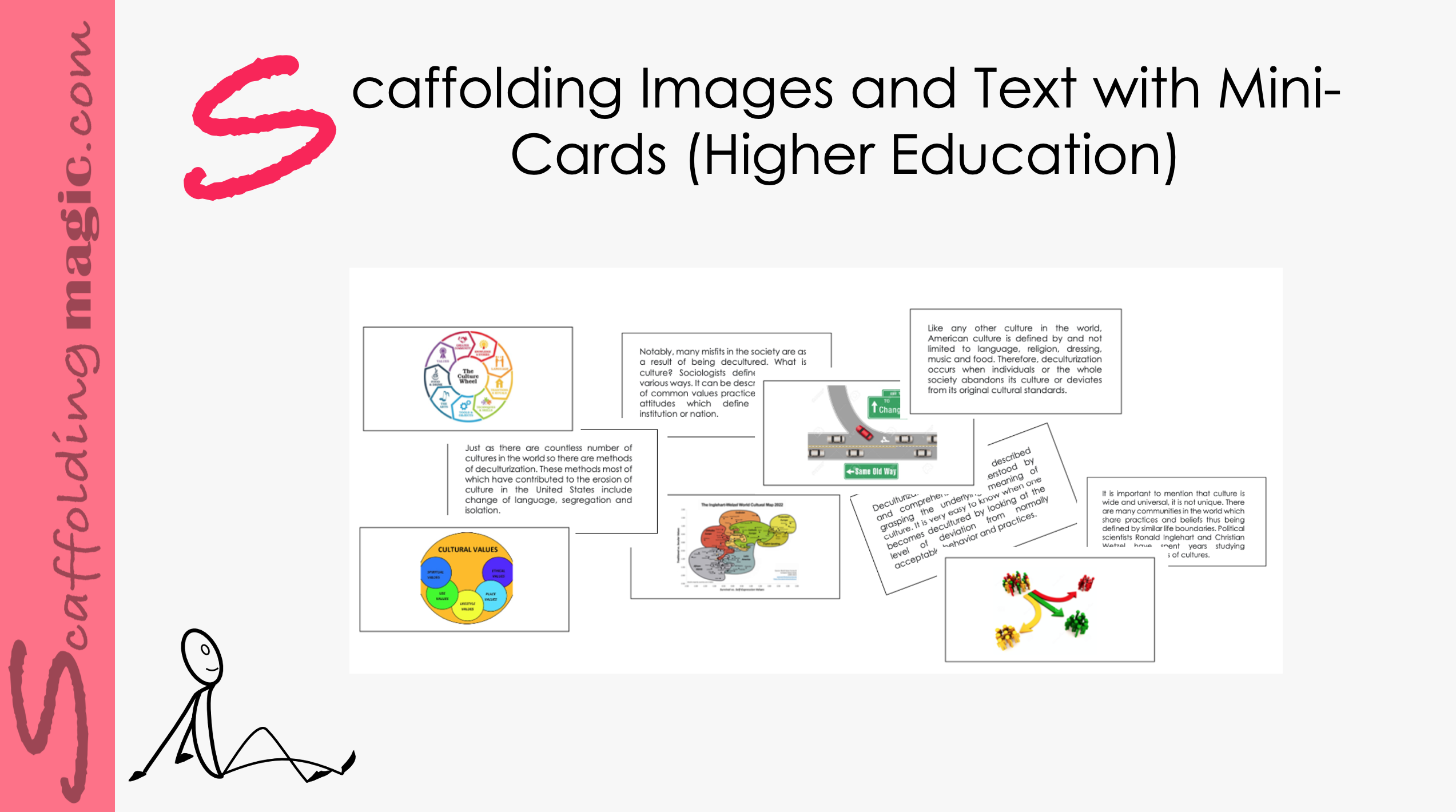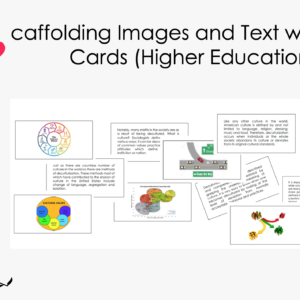Knowing the sequence of events in a text, story, video, laboratory experiment, sports competition, musical composition, preparation of art materials, etc. is an essential skill for students. This is an integral part of Pre-school and Lower-Primary school lessons, but it is often forgotten in higher grades. We need to intentionally give our students the opportunities to be able to recognise and express sequences, and we need to provide the phrases they can use to clarify the ordering of events.
Scaffolding by Enriching the Sequencing Dynamic (Higher Education)
$5.00
Knowing the sequence of events in a text, story, video, laboratory experiment, sports competition, musical composition, preparation of art materials, etc. is an essential skill for students. This is an integral part of Pre-school and Lower-Primary school lessons, but it is often forgotten in higher grades. We need to intentionally give our students the opportunities to be able to recognise and express sequences, and we need to provide the phrases they can use to clarify the ordering of events.
Related products
-
Higher Education ScaffoldsQuick View
Scaffolding Maps and Graphs with Higher-Order Level Questions (Higher Education)
$5.00 Add to cartRated 0 out of 5 -
Higher Education ScaffoldsQuick View
Scaffolding Academic Language with ‘What’s Missing?’ (Higher Education)
$5.00 Add to cartRated 0 out of 5 -
Higher Education ScaffoldsQuick View
Scaffolding Academic Language by Identifying Visual Differences (Higher Education)
$5.00 Add to cartRated 0 out of 5 -
Higher Education ScaffoldsQuick View
Scaffolding Images and Text with Mini-Cards (Higher Education)
$5.00 Add to cartRated 0 out of 5
Scaffolding Maps and Graphs with Higher-Order Level Questions (Higher Education)
Higher-order level questions – those that elicit deeper thinking – help students to stretch their thinking and engage their curiosity, their reasoning ability, their creativity, and independence. These questions encourage students to open their minds, they offer opportunities to produce original thinking.
Higher-order level questions – those that elicit deeper thinking – help students to stretch their thinking and engage their curiosity, their reasoning ability, their creativity, and independence. These questions encourage students to open their minds, they offer opportunities to produce original thinking.
Scaffolding Academic Language with ‘What’s Missing?’ (Higher Education)
This scaffold address the importance of academic language, which is so important that experts assert that the warehouse of words a person has stored away is directly connected to their quality of thinking: higher quality of words equals higher quality of thinking.** In this age of the Fourth Industrial Revolution, the quality of thinking our students reach in our classes, will be the difference between being qualified for jobs that technology is (still) not capable of performing, and watching the world from the sidelines.
This scaffold address the importance of academic language, which is so important that experts assert that the warehouse of words a person has stored away is directly connected to their quality of thinking: higher quality of words equals higher quality of thinking.** In this age of the Fourth Industrial Revolution, the quality of thinking our students reach in our classes, will be the difference between being qualified for jobs that technology is (still) not capable of performing, and watching the world from the sidelines.
Scaffolding Academic Language by Identifying Visual Differences (Higher Education)
Creating opportunities for our students to use academic terms and phrases while analysing, comparing, categorising, and defending their own ideas, triggered by the search for visual differences in an educational resource you’ve manipulated.
Creating opportunities for our students to use academic terms and phrases while analysing, comparing, categorising, and defending their own ideas, triggered by the search for visual differences in an educational resource you’ve manipulated.
Scaffolding Images and Text with Mini-Cards (Higher Education)
In this scaffold, students have the opportunity to develop their linguistic and visual skills as they negotiate connections between text and images. They also interact with the information through temporal and grammatical transformations, as well as bodily-kinesthetic interplay.
We take every opportunity to expand our practice. Whenever possible, we broaden the variety of strategies we use in our classroom activities so that when our students go out into the world, they are more prepared – all because of the extra effort we put into our lessons.
In this scaffold, students have the opportunity to develop their linguistic and visual skills as they negotiate connections between text and images. They also interact with the information through temporal and grammatical transformations, as well as bodily-kinesthetic interplay.
We take every opportunity to expand our practice. Whenever possible, we broaden the variety of strategies we use in our classroom activities so that when our students go out into the world, they are more prepared – all because of the extra effort we put into our lessons.
